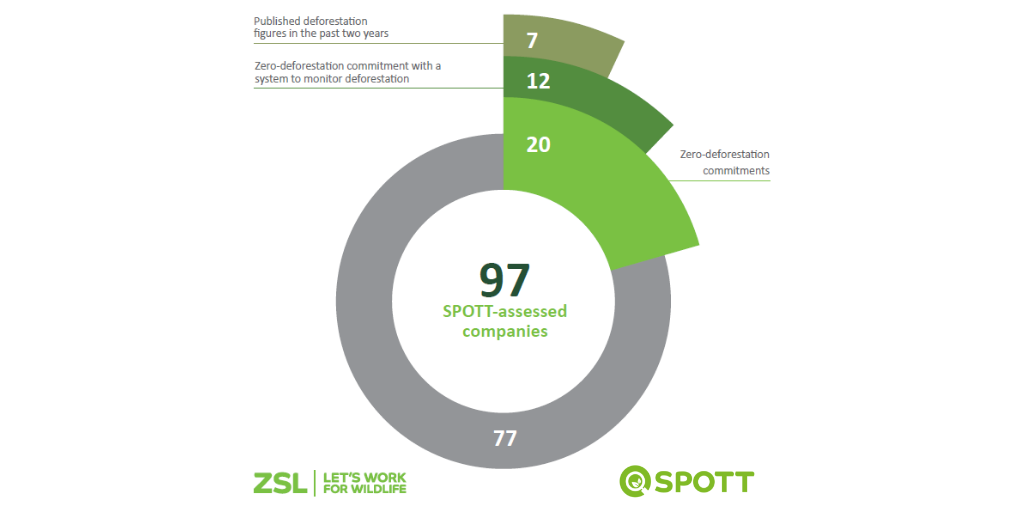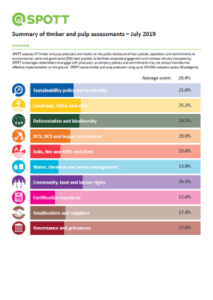Only 6% of the world’s most significant timber and pulp producers and traders with operations in the tropics are taking steps to assess the impacts of climate change – posing a risk to the forestry industry and all its investors.
Increasingly frequent droughts, extreme weather events and exposure to new tree pests and diseases are just some of the repercussions forestry companies face due to rising global temperatures – affecting timber yields, prices and company profits throughout the supply chain.
The analysis, completed by international conservation charity ZSL’s (Zoological Society of London) SPOTT initiative, assessed 97 forestry companies whose activities could directly threaten carbon and biodiversity-rich tropical forests, which are home to many endangered species.
Just 6 out of the 97 companies were found to be assessing the impacts the sector is currently facing due to climate change. Together, the 97 companies control an estimated 46.6 million hectares of land (an area 15 times the size of Belgium).
In addition, only 20 out of the 97 companies have committed to zero-deforestation, meaning the majority of forested areas within the land controlled by the remaining companies is still vulnerable to being cleared to make way for plantations, or for other uses such as roads, sawmills or other industries.
Reducing emissions from deforestation and forest degradation and enhancing forest carbon sinks are widely accepted climate change mitigation measures that forestry companies can help implement.
Within the 20 companies with zero-deforestation pledges, just 11 of these companies require all their wood suppliers to also uphold their zero-deforestation commitment ensuring a deforestation-free supply chain, and only 12 have fit-for-purpose reporting systems that monitor deforestation. A lack of transparency in the sector means measuring progress towards zero-deforestation commitments is ultimately impossible.

Oliver Cupit, SPOTT Manager, said: “Protecting forests is essential to meeting targets set out by The Paris Agreement. Tropical forests could provide up to 30% of the mitigation required to combat climate change – they store vast quantities of carbon, as well as actively removing carbon from our atmosphere.
“Companies operating in tropical forests not only face risks to their business from climate change but have a real ability to effect change – if they can commit to, and demonstrate their actions on, zero-deforestation, we would all – wildlife and people – see a huge benefit.
“As well as the detrimental impact on wildlife around the world, if not addressed, climate change and deforestation pose major financial and reputational risks to companies, their buyers and investors.”
Robert-Alexandre Poujade, ESG Analyst at BNP Paribas Asset Management and member of the London (ZSL) SPOTT Timber and Pulp Technical Advisory Group said: “With nearly a quarter of forest degradation and loss driven by forestry, more disclosures are needed to assess and manage the potential impacts of forestry activities on biodiversity and our climate. Accurate data regarding the extent, location and boundaries of a company’s concessions is vital for monitoring environmental damage in and around company concessions, helping to ensure that companies are being good stewards of the land they are entrusted with.”
With responsible investment and green finance approaches gaining momentum, clear disclosure from companies is crucial to enable financiers to assess and address climate and deforestation-related risks.

